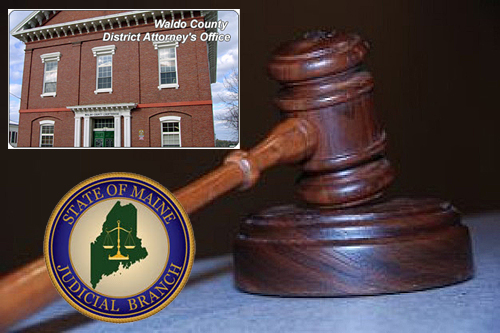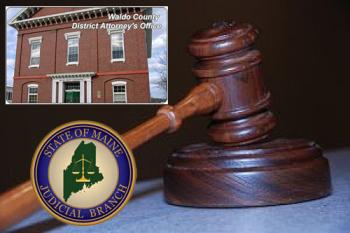State law court overturns former Searsport teacher's 2011 conviction; state drops charges
Charges against William Wiley, formerly a Searsport music teacher accused of child molestation, are being dropped, according to the Waldo County District Attorney's Office. The decision comes after the Maine Supreme Judicial Court in March vacated Wiley's April 2011 conviction on 10 counts of unlawful sexual contact and remanded the case back for further proceedings.
A Waldo County Superior Court jury found Wiley guilty two years ago of seven counts of class C unlawful sexual contact and three counts of class B unlawful sexual contact, stemming from accusations in April 2009 he molested a seventh-grade student. Wiley was sentenced to 15 years in prison, with all but three years suspended, and six years of probation. Wiley subsequently appealed his conviction to the state law court.
In his appeal, Wiley argued that the lower court erred in denying his motion to suppress statements he made to a detective because he was not advised of his Miranda rights prior to interrogation while in custody, and that statements he made prior to and after his arrest were involuntary.
The law court decision came in a 4-3 split, with four of the justices ruling that a detective from the Waldo County Sheriff's Office improperly used persuasion as a tool to obtain Wiley's confession to the crimes. The Sheriff's Office was alleged to have persuaded Wiley to confess under the belief that a confession would result in a more lenient sentence.
The law court did not find in Wiley's favor on the Miranda question, because it said there was evidence supporting the findings that Wiley was not in custody "for purposes of the Miranda requirements," according to the court document.
Wiley's contention of making involuntary statements was bolstered by the argument he made them while under severe emotional distress, that the detective "induced his statements" by making "offers of leniency" and "with threats of what his family would have to endure if he did not admit" sexually abusing the victim.
The standard applied by the justices, according to the court document, is noted as follows. "A confession is voluntary if it results from the free choice of a rational mind, if it is not a product of coercive police conduct, and if under all the circumstances its admission would be fundamentally fair."
"Confession is not voluntary where an interrogating officer ... leads a suspect to believe that a confession will secure a favorable, concrete sentence, and that belief motivates the suspect to confess," Justice Jon D. Levy wrote as an explanation for the verdict.
According to the court document, the taped interview between Wiley and the detective showed that the detective created a certain relationship between Wiley's level of cooperation and what kind of jail or prison time he would get. The detective reiterated during hours of interrogation that Wiley's cooperation would secure him leniency in the form of a short jail sentence and probation, versus a long prison sentence.
"It is inescapable that the overall effect of Detective [Jason] Bosco's representations – which he alternately described as an 'offer,' 'option,' 'opportunity' and chance to 'write your own punishment' – was to establish that if Wiley confessed to the crimes he would get a short county jail sentence with probation, and thereby avoid state prison. Wiley was told, '[t]he only reason you're getting this opportunity is because people spoke very highly of you,' and that '[t]his offer's going to expire if ... you're not going to do the right thing.' The conclusion that this concrete representation was, in effect, an improper offer of leniency is inescapable," wrote Justice Levy in the court document.
Not everyone agrees that the confession came as a result of persuasion, including Deputy District Attorney Eric Walker. Speaking about the law court's decision, Walker this week said, "During the [2011] jury trial the same issue was argued and the [resulting] guilty verdicts can be read only one way - that the jury believed that Wiley's confession was voluntary."
Walker also pointed to the three justices who dissented, including Chief Justice Leigh Saufley and justices Donald Alexander and Ellen Gorman. In the court document, Justice Alexander wrote, "In overriding the trial court's finding that Wiley's confession was voluntary, the [Law] Court has failed to focus on the critical aspect of the analysis — Wiley's state of mind — and it has instead focused on the officer's statements. Accordingly, I must respectfully dissent."
The dissenting justice went on to write, "We have regularly affirmed, as recently as three years ago, trial court findings that statement were voluntary, despite evidence of police statements during interviews that could be construed as promises of more lenient treatment or other inducements in return for confessions... We affirmed these voluntariness findings because our focus was on the defendant's state of mind, looking to evidence of exercise of the defendant's 'own free will and rational intellect,' rather than a focus on particular police statements.
The justices affirming the decision to vacate included Levy, Warren Silver, Andrew Mead and Joseph Jabar.
Following the law court's decision, Walker said if the state were to retry Wiley, it would have been without the aid of the man's confession.
"The victim and her family were deeply saddened and disappointed by the court's decision," said Walker, "But understood that having another trial without the confession would be nearly impossible."
The feeling of disappointment at dropping the charges against Wiley is one shared by Walker, who said the decision is "a huge disappointment to the State."
------------------------------
Editorial Director Holly S. Edwards can be reached by email at hollyedwards@penbaypilot.com or at 542-9149.
Reach Erica Thoms at news@penbaypilot.com.
Event Date
Address
United States

























